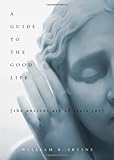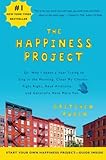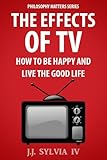Master Plans?
In light of JustHeath’s post on some psychological studies to help live the good life in the new year, I thought I would follow-up with some suggestions from classical philosophy, mixed in with some of the experiences I’ve had over the past year, in order to think about how to make the best new year’s resolutions!
An About.com article I read recently suggested that the Stoics offer a great master plan for guiding new year’s resolutions.
The Stoics believed in one basic behavior: being good. People do this by, among other things,
- living according to nature,
- helping others,
- commitment to self-improvement routines,
- being dutiful, which may include attempting to persuade others of one’s beliefs, and
- central to all else, maintaining a proper attitude.
While I think these are great as a master plan, they actually make pretty terrible resolutions in and of themselves. Why?
They’re both vague and hard to measure progress, which makes it almost impossible to stick to them. It’s important to make sure that your resolutions are both small enough and concrete enough:
People often make abstract resolutions. “Be more optimistic,” “Find more joy in life,” “Enjoy now,” are hard to measure and therefore difficult to keep. Instead, look for a specific, measurable action. “Distract myself with fun music when I feel gloomy,” “Watch at least one movie each week,” “Buy a plant for my desk” are resolutions that will carry you toward those abstract goals.
Many people make super-ambitious resolutions and then drop them, feeling defeated, before January is over. Start small! We tend to over-estimate what we can do over a short time and under-estimate what we can do over a long time, if we make consistent, small steps. If you’re going to resolve to start exercising (one of the most popular resolutions), don’t resolve to go to the gym for an hour every day before work. Start by going for a ten-minute walk at lunch. The humble resolution you actually follow is more helpful than the ambitious resolution you abandon. – Gretchen Rubin
Tiny Habits
Aristotle believed that we become virtuous (and achieve the good life) through habituation – by repeatedly doing the right thing. When you think about it, this really sounds a lot like New Year’s Resolutions! Aristotle himself never contributed much directly to the process of habitation, though. One of the things I’ve studied in depth this past year is how to use technology to persuade others to make positive change – but an important part of that is the process of persuasion.
Much of what I have learned has been from the work of Dr. B.J. Fogg, and one of his latest projects is helping others create good habits through what he calls the use of “tiny habits.” One of the easiest ways to create a new habit is to anchor it to an existing habit, using something as simple as possible. What does that mean? Check out some examples Fogg provides:
“After I brush, I will floss one tooth.”
“After I pour my morning coffee, I will text my mom.”
“After I start the dishwasher, I will read one sentence from a book.”
“After I walk in my door from work, I will get out my workout clothes.”
“After I sit down on the train, I will open my sketch notebook.”
“After I hear any phone ring, I will exhale and relax for 2 seconds.”
“After I put my head on the pillow, I will think of one good thing from my day.”
“After I arrive home, I will hang my keys up by the door.”
The “after” is extremely important for performing these, because it serves as our constant reminder to actually DO the action we want to do. This is one of the easiest way to build in new habits, and using these methods, we can become habituated in as little as seven days!
What To Improve?
Although it’s easier to create new good habits than it is to break old bad habits, both can be done. Long time readers might remember that one of my biggest accomplishments this year was giving up soda, which took a great deal of will power. A good place to start thinking about what kinds of resolutions we want to make could be thinking about the costs/benefits of certain things that we normally don’t consider. Check out this video on the hidden cost of soda, for example:
[vimeo 54303384 w=400 h=300]
Video by InsuranceQuotes.org
While giving up soda may not be on everyone’s list, I hope this video can give you an idea of how there are certain things in our lives we may take for granted, but have more of a cost than we realize. There all kinds of things like this in our lives. Take a moment right now, pause, and think about a few of the things you do or don’t do in your life that have far-reaching impacts… jot them down as your brainstorm! Don’t worry, I’ll be waiting right here for when you’re ready to come back!
…
If you’re having trouble, a good place to start is to think about the master plan suggestions of the Stoics. For example, maybe you realized that in 2013, maintaining a proper attitude will be very important. Start thinking about some times in your life that you don’t do this. Or times when you have been very good about maintaining a proper attitude. That should get your creative juices flowing!
Putting It All Together
Now, the key is finding a very simple behavior linked to one of the master plan actions. Let’s try an example!
Perhaps you decided maintaining the right attitude was your important goal for the new year. Now let’s look over the list you started and see what’s there, because maybe we can find one of those anchors we talked about earlier. For anyone who’s ever had a work cell phone, perhaps ou might see on your list that you struggle maintaining the right attitude when you hear the phone ring! That’s ok – because this gives us a great anchor point with which to start!
Ok, so you know what you want to change. What might help improve your attitude? When that phone rings and your stress receptors start firing, try to think of something simple you can do to reverse that trend. Maybe it’s something like exhale deeply and relax for two seconds. This little break can give you the quick attitude adjustment you need that could end up making a big impact in your day-to-day life!
What does that mean for your resolution? Instead of resolving to “maintain the right attitude, get simple and concrete with something such as: “After I hear any phone ring, I will exhale deeply and relax for 2 seconds.”
This strategy will help you create resolutions for the new year that will turn into positive habits!
With that in mind, what resolutions will you make?
I can suggest one near and dear to my heart: Watch less TV!
In this post:





1 comment